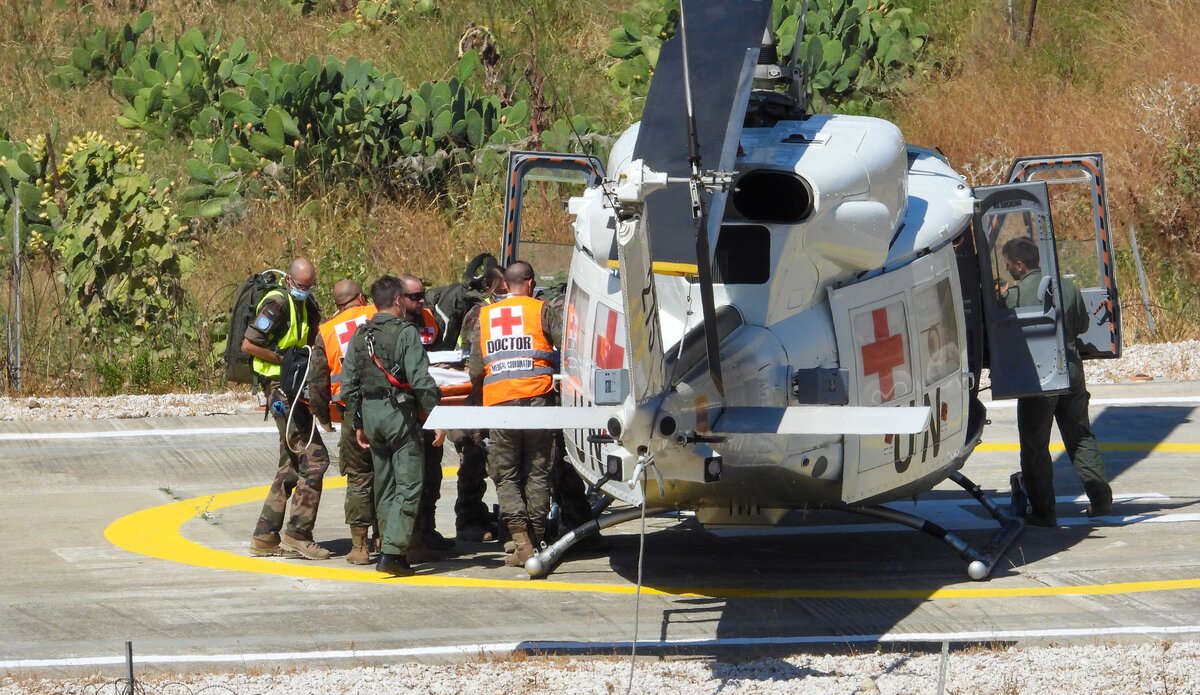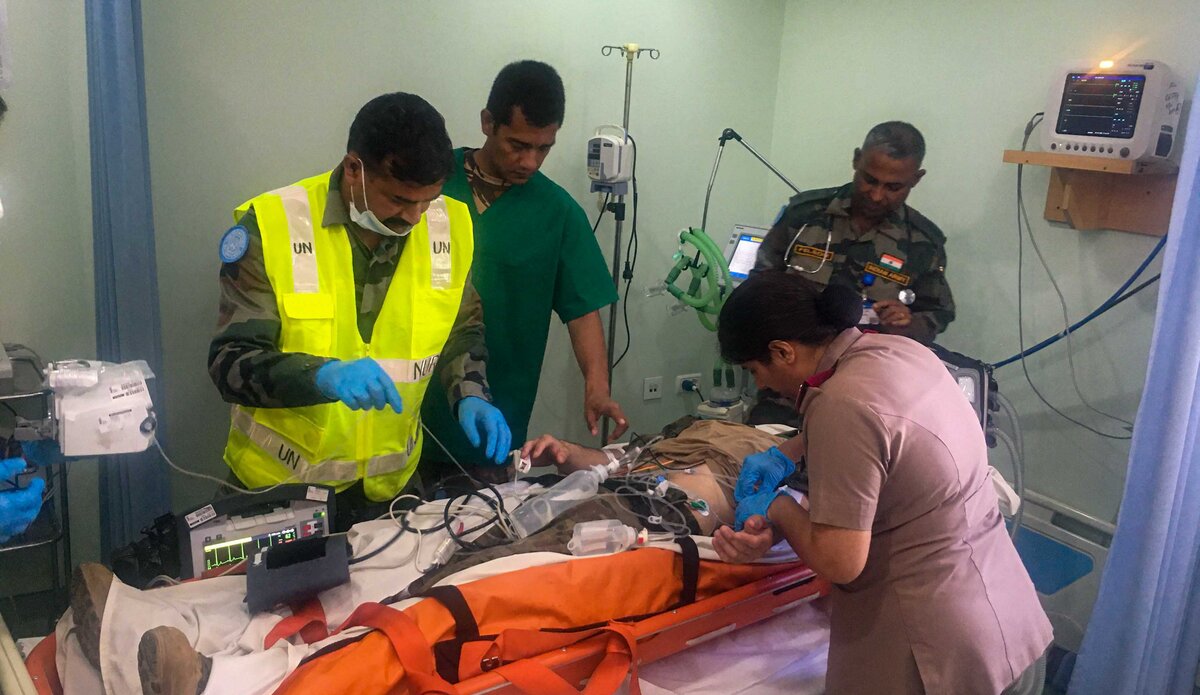Serious accidents require the best response
Two patrolling UNIFIL vehicles succumb to adverse road and weather conditions causing one of the vehicles to veer off the road and overturn, while the second barely manages to avoid the same fate.
Four peacekeepers are injured; one severely and three moderately, calling for a casualty evacuation or CASEVAC, which was requested immediately.
Although this is a training exercise with a simulated accident, it is far from being theoretical. Throughout the sixteen years of UNIFIL patrolling across southern Lebanon similar accidents have occurred. Given the harsh and unstable road and weather conditions in South Lebanon, such incidents have to be factored into the overall parameters of the more than 400 daily patrols that UNIFIL conducts every single day.
The key to a successful medical or casualty evacuation (MEDEVAC or CASEVAC), is impeccable communications and adherence to standard operating procedures (SOP), the seamless coordination between the various assets and teams, and the readiness, speed and skills to carry out the required emergency tasks.
You would expect all of the above from a seasoned single military force, but this is not the case with a peacekeeping mission such as UNIFIL. The UN's Interim Force in Lebanon currently has 47 troop-contributing countries. The peacekeepers of all of these countries have to work together under one single command, making operations in a typical peacekeeping mission much more complex than within a single nation's own military.
In this MED/CASEVAC exercise a number of UNIFIL's contingents worked together to pull off the complex operation.
Under the command of the Spanish Battalion Sector East (SPANBATT) and in coordination with the Joint Operations Center of UNIFIL's HQ in Naqoura, the Task Force Italair (TF ITALAIR) provided the 24/7-ready MEDEVAC helicopter; the French Aerial Medical Team (AMET) flew in with the helicopter; the Spanish Battalion Forward Medical Team (SPANBATT) arrived at the scene by road; Indonesian Military Police Sector East (SEMPU) secured the location; and the Chinese (CHINMEDCOY), Indian Force Medical Officer (INDBATT) and other contingent doctors tended to the injured in the hospitals.
Needless to say, the CASEVAC operation was a success, thanks to UNIFIL's frequent training and readiness exercises and the fluid cooperation between its various contingent assets. Such exercises are also regularly conducted in conjunction with the Lebanese Armed Forces (LAF), who are UNIFIL's strategic partner in South Lebanon.
 UN
UN United Nations Peacekeeping
United Nations Peacekeeping









